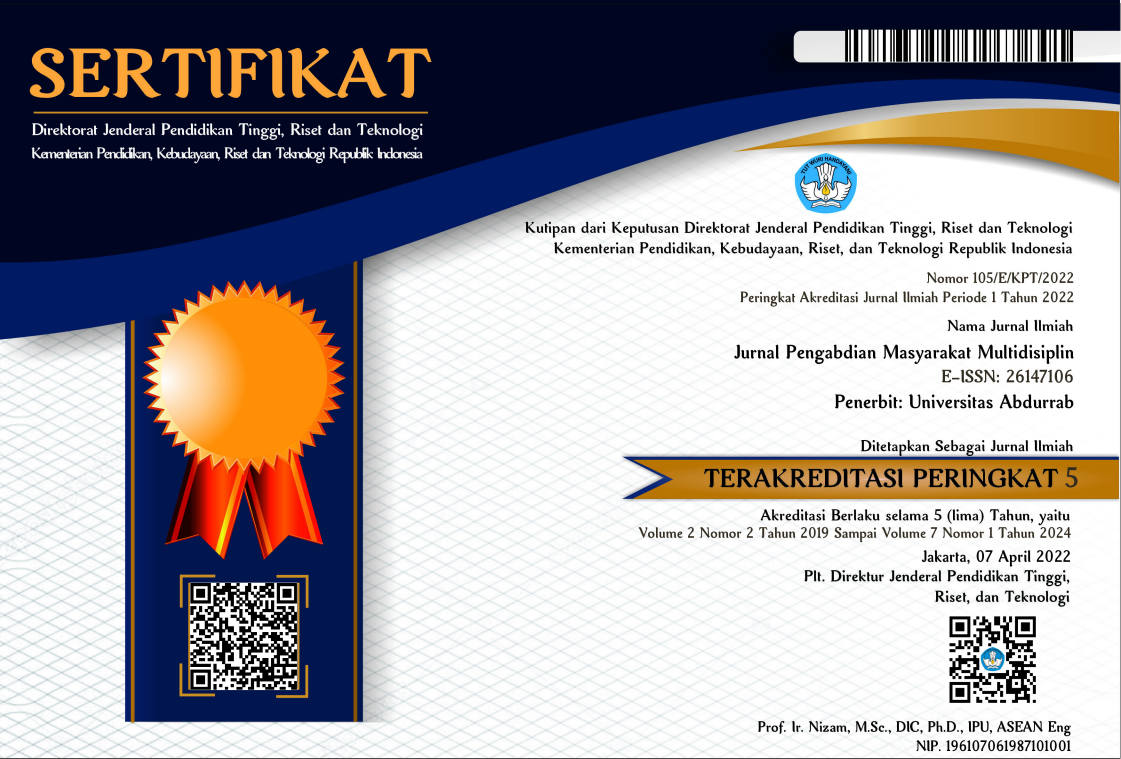PELATIHAN MERANCANG PROGRAM LITERASI RAMAH ANAK BAGI GURU GUNA MENINGKATKAN MINAT BACA SISWA
DOI:
https://doi.org/10.36341/jpm.v6i1.2672Keywords:
child, literacy, reading, trainingAbstract
The world is entering the stage of globalization 4.0 which is marked by the spread of digital technology and the formation of a digital society across national borders, nations and ages. For the education, this condition affects the literacy. Although the illiteracy rate in Indonesia continues to decrease, the reading interest is still low. This condition is worrying if we relate it to globalization 4.0, which opens wide the faucet of information to Indonesia. Children without good literacy skills do not have a good filter in absorbing information, good or bad, right or wrong. Provision of literacy skills for children is important from early age. This can be played by teachers at the elementary school level. This service aims to conduct training for teachers to design literacy programs that are attractive to students, so as to increase students' interest in reading and make students well literate. The partner is SDIT LHI Yogyakarta. The training includes a balanced literacy approach; introduction to leveled books; and the methods teaching at students' level. The output of the activity is to increase the capacity of teachers in making child-friendly literacy programs. This capability can then be applied to increase children's interest in reading and promote literacy movements in building a smart Indonesian digital society.
Downloads
Downloads
Published
How to Cite
Issue
Section
License
1. Copyright of all journal manuscripts is held by the Jurnal Pengabdian Masyarakat Multidisiplin.Formal legal provisions to access digital articles of electronic journal are subject to the provision of the Creative
2. Commons Attribution-ShareAlike license (CC BY-NC-SA), which means that Jurnal Pengabdian Masyarakat Multidisiplin is rightful to keep, transfer media/format, manage in the form of databases, maintain, and
3. publish articles.Published manuscripts both printed and electronic are open access for educational, research, and library purposes. Additionally, the editorial board is not responsible for any violations of copyright law.
licensed under a Creative Commons Attribution-ShareAlike 4.0 International License.







